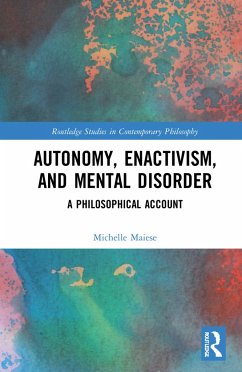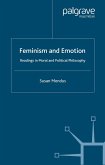This book brings together insights from the enactivist approach in philosophy of mind and existing work on autonomous agency from both philosophy of action and feminist philosophy. It then utilizes this proposed account of autonomous agency to make sense of the impairments in agency that commonly occur in cases of dissociative identity disorder, mood disorders, and psychopathy.
While much of the existing philosophical work on autonomy focuses on threats that come from outside the agent, this book addresses how inner conflict, instability of character, or motivational issues can disrupt agency. In the first half of the book, the author conceptualizes what it means to be self-governing and to exercise autonomous agency. In the second half, she investigates the extent to which agents with various forms of mental disorder are capable of exercising autonomy. In her view, many forms of mental disorder involve disruptions to self-governance, so that agents lack sufficient control over their intentional behavior or are unable to formulate and execute coherent action plans. However, this does not mean that they are utterly incapable of autonomous agency; rather, their ability to exercise this capacity is compromised in important respects. Understanding these agential impairments can help to deepen our understanding of what it means to exercise autonomy, and also devise more effective treatments that restore subjects' agency.
Autonomy, Enactivism, and Mental Disorder will be of interest to researchers and advanced students working in philosophy of mind, philosophy of action, philosophy of psychiatry, and feminist philosophy.
While much of the existing philosophical work on autonomy focuses on threats that come from outside the agent, this book addresses how inner conflict, instability of character, or motivational issues can disrupt agency. In the first half of the book, the author conceptualizes what it means to be self-governing and to exercise autonomous agency. In the second half, she investigates the extent to which agents with various forms of mental disorder are capable of exercising autonomy. In her view, many forms of mental disorder involve disruptions to self-governance, so that agents lack sufficient control over their intentional behavior or are unable to formulate and execute coherent action plans. However, this does not mean that they are utterly incapable of autonomous agency; rather, their ability to exercise this capacity is compromised in important respects. Understanding these agential impairments can help to deepen our understanding of what it means to exercise autonomy, and also devise more effective treatments that restore subjects' agency.
Autonomy, Enactivism, and Mental Disorder will be of interest to researchers and advanced students working in philosophy of mind, philosophy of action, philosophy of psychiatry, and feminist philosophy.








